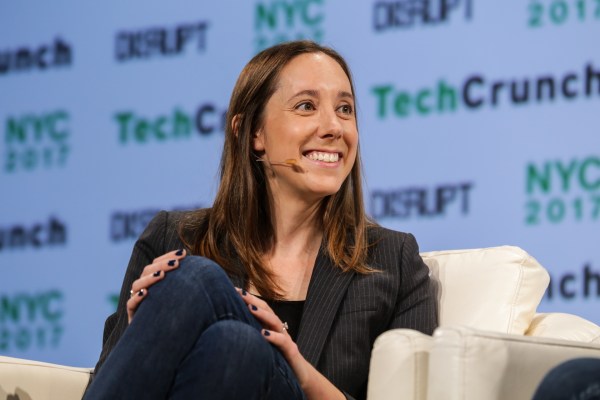Caribou Bioscience co-founder and CEO Rachel Haurwitz joined us onstage at Disrupt this morning to help unpack some of the myriad complexities around her company’s pioneering work in the field of CRISPR biology. The gene editing tool has been the source of tremendous excitement over the last several years for its potential to help science hack everything from disease to food supply.
But along with all of that potential comes some key questions around ethics and a protracted legal battle around precisely who invented — and therefore owns the rights to — the technology. Caribou is one of the key groups claiming to have a place in that invention, courtesy of the pioneering work by Haurwitz’s co-founder Jennifer Doudna, who played a key role in helping to develop the technologies around CRISPR early in the process.
CRISPR works by essentially serving a part of “molecular scissors,” in Haurwitz’s words, using a protein called Cas9 to edit genes. The work of Caribou and other CRISPR-centric companies is still very much in the early stages, but the potential of the technology is enormous.
“I think there’s a lot of enthusiasm and excitement and I think a lot of that is centered around the human therapeutic applications,” said Haurwitz. “There’s tremendous potential to treat and possibly cure genetic diseases using this technology, and to treat cancer in new ways. I think people are, by and large, excited about this technology and are participating in a lot of technologies around how to use this technology in foods.”
Before such processes can be carried out, however, certain ethical issues must be weighed, particularly as they pertain to use on humans, where CRISPR could potentially serve as a preventive tool against certain genetically driven diseases like cancer. During the conversation, Haurwitz reiterated her company’s stance against human embryo testing — an issue that has risen to the front as teams in China have already begun work on that front.
“Our company has drawn a really strong line that we will never edit human embryos,” says Haurwitz. “There are certainly a lot of ideas being thrown around for preventative medicine. If you’re purely trying to do preventative medicine, I think there are so many unknown questions about the potential effects of editing an embryo that I don’t think that would be a safe approach to preventing new diseases.”
The ongoing legal battle has also proven a roadblock. Earlier this year, Harvard and MIT’s Broad Institute were awarded a patent, much to the consternation of Caribou and other teams that sprung out of research from the University of California. Haurwitz blames outdated laws, in part, which have failed to keep up with the pace of technology.
[gallery ids="1491014,1491013,1491012,1491011,1491009,1491008,1491007,1491006,1491005"]
“Part of the debate is what is it,” says Haurwitz. “And the next part was who was first. Eventually, you get to a part in the process where people are digging into old lab notebooks, trying to figure out to who did what, when. This all harkens back to a former version of the law in the U.S. that has since been changed, but this really falls under the old version, where patents really fall under the concept of first to invent, and ultimately you have to prove that out in a contested environment. Whereas in the rest of the world, and now here in the United States, it’s first to file.”
But the University of California team has filed an appeal, a battle that’s likely to continue for at least another 18 months. In Europe, on the other hand, the University of California was awarded a victory recently, marking a major break from the ongoing patent dispute in the States — and giving Haurwitz and team faith for the legal battle to come.
